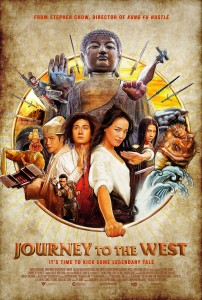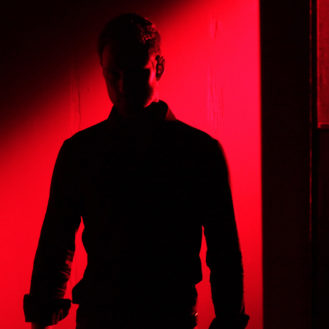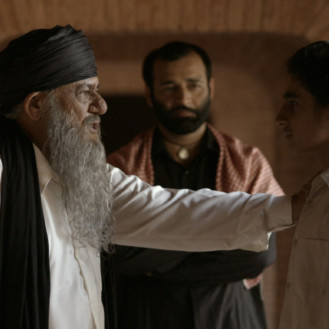As times change, a filmmaker is faced with the potential to grow within their craft. I haven’t seen or heard from writer/director Stephen Chow since 2004’s fantastically insane Kung Fu Hustle, so I suppose I forgot that he would have to face this fork-in-the-road in his career if he continued to make movies.
I see that advancement in his latest effort Journey to the West, but it’s not in the film’s tone. He hasn’t lost his surge of childlike energy and imagination when putting together awing action and absurd characters. This is still a film where masters in the martial arts punch someone to slowly and hilariously reveal that they’re a repugnant swine in disguise.
That growth is within the punchy characters and the film’s script. Chow, co-director Derek Kwok, and a team of co-writers have strung together an adapted classic that brings philosophies and genuine perseverance into development while alternately forming a crazier version of Ghostbusters.
Xuan Zang (played perfectly by Zhang Wen) is a Buddhist and a demon hunter. He strives to become as strong of a hero as other, more savage hunters, but he can’t bring himself to obliterate a bad egg. He instead would like to bring the good out of these fierce creatures using a simple book of nursery rhymes. Or so, that’s what he was taught by his master.
Like other Chow vehicles, the characters are cartoons and are physically treated like rubber balls in an enclosed space. When we see them distressed because something has gotten in the way of their mission (non-violent strategies not panning out as well, that crush shutting down romantic advances), it brings that emotional weight in order to issue a much needed tenderness to round them out and for us to care a bit more.
When we see Sanzang crushed because he believes his way of life doesn’t sync up to where he wants his demon hunting career to prosper, it’s a scene that quakes. We want to see this underdog succeed after that.
You can decide to read into some motivations and hints as Chow and Kwok try to add persuasive messages about religion or specific philosophies, but I’d rather not. Sanzang is a peaceful individual who follows his special book in order to right wrongs. It’s not hard to passively connect-the-dots. But again, Journey to the West has that frivolous charm that doesn’t suggest the filmmakers are working with a hidden agenda and trying to make one belief look better than the others – or, that it’s the only answer.
I can also see how it’d be easy for one to assume slight homophobia amongst a couple of the jokes. These jokes consist of a man doing something somewhat feminine to a normal guy who reacts.with bluntness. Once again, don’t look into it too hard. They may occasionally leave an off-colour taste in your mouth, but the film is not nasty by any means. Chow’s humour is goodnatured and plays towards naive notes. One of these set-ups involving controlling someone else’s body is actually one of the most bafflingly funny moments in this zany picture.
The fights are well choreographed and effortlessly sew in exaggerations. Tang’s demon hunting accomplice Miss Duan (played by Qi Shu) is intimidatingly brawny and furious during her brawls. But, as she punches people into dust, their faces leave outlandish dents as their fleshy veneers cave in. A grade-A example of how and why slapstick isn’t a dated form of comedy.
Journey to the West is a blast to watch, but it’s also the right movie for the vigorous Stephen Chow to make at this point in his career. Chow supplies the nostalgia and boisterous entertainment that made his past successors memorably original, and shows audiences how he plans to expand his ability to make sensational films. I sure hope I don’t have to wait another decade to see another spectacle from Stephen Chow.





Leave a comment